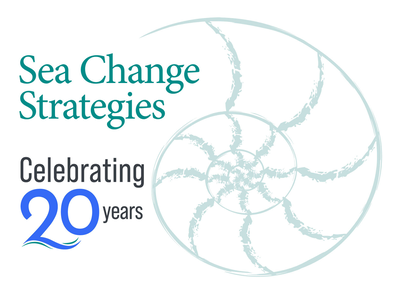Build trust every day: A call to action for non profit leaders
This is serious.
As non profit leaders we work in a domain that relies on trust.
Yet, according to the recently released fourth annual Independent Sector report Trust in Civil Society, only 52% of Americans say they trust nonprofits to do what is right today, down a statistically significant 4 percentage points from last year.
We live in a highly polarized environment that is rife with accusations of “fake news” and conspiracies. We are also juggling the repercussions of artificial intelligence and digitally manipulated media (aka deep fakes) on trust. And we are bridging building relationships with new generations of donors — ones that have different perceptions of non profit accountability.
Understanding, managing and prioritizing trust is absolutely critical — now more than ever. We cannot rest on previous good will. Our job as non profit leaders must be to strengthen trust with everyone we touch — donors, volunteers, employees, colleagues and board members…
But building trust takes intention, commitment, action and accountability each and every day at every level of your organization starting with you.
Here are some ideas to kickstart a conversation for making trust a priority.
- Make it a value. Values are north stars for what is important. What is important gets prioritized. If trust, is not an expressed value of your organization, it should be.
- Start small. If you can’t make trust a value for your organization, make it a value for the department you lead or work in. Exercise your agency and make trust a priority in your sphere of influence.
- Do what you say you will do. Reneging on commitments you’ve made without communicating why is one of the best ways to minimize trust.
- Repair. Admitting when you’ve made a misstep and rectifying mistakes is one of the best ways to build trust and deepen relationships.
- Create a team agreement. Co-create an agreement for your team about how you want to build trust together. Expressly articulate what each team member values around trust (e.g. promptly starting meetings, taking notes with clear action items, clearly articulating key performance metrics, etc…). Be accountable to this agreement.
- Create a donor agreement. Tell donors expressly what they can expect from their relationship with you. Will you report back your impact 3x per year? Will you invite them to volunteer? Will you send them a tax receipt? Tell them. Post it online, link to it in digital communications, include it in offline pieces. Be accountable to this agreement.
- Report back. One of the best ways to build trust is to report back. If you’ve surveyed your donors/staff recently, tell them what you’ve learned. If you’ve had wins, share those victories. If you’ve suffered set backs, be transparent about those set backs and how you plan to overcome them.
As you can see, trust is a ground game. It’s built step-by-step through intentionality and follow through.
I encourage you to riff on these ideas and add your own. Let’s make trust foundational to everything we do.
